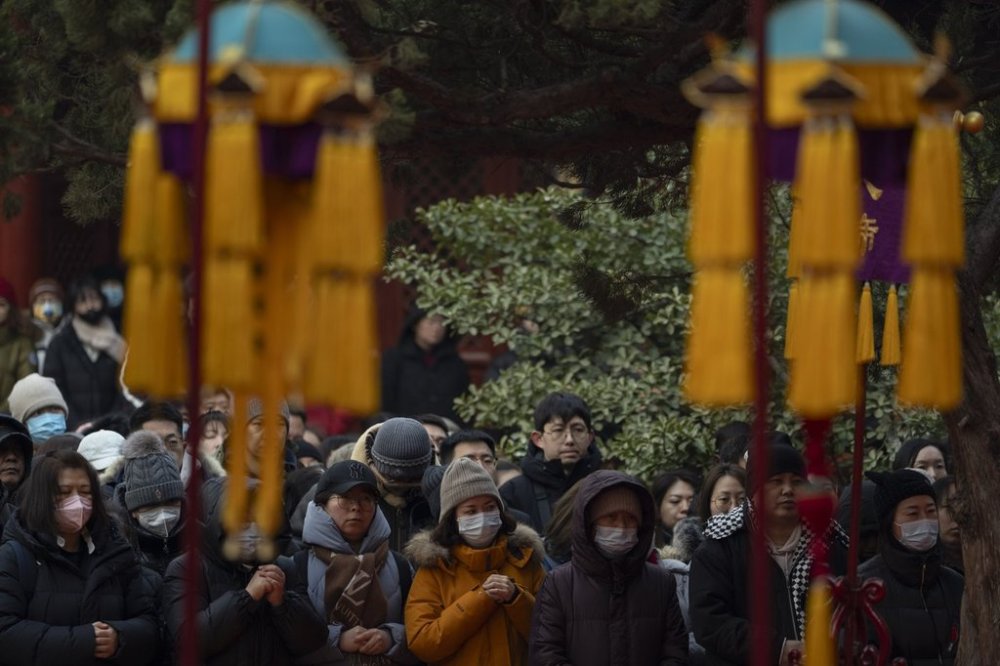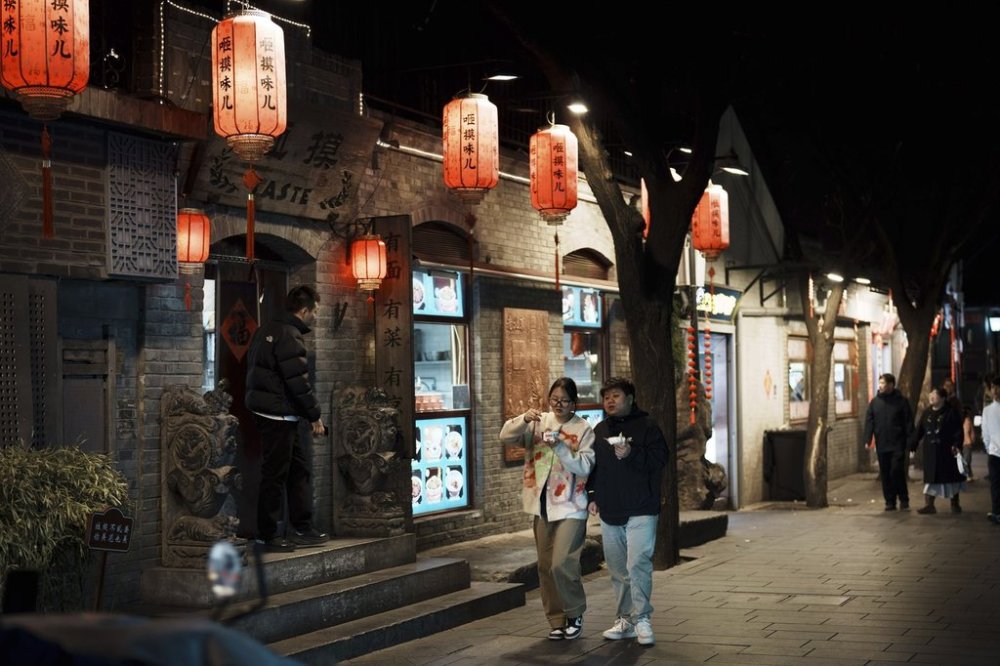Consumer prices fell in China in February and remain flat in a sluggish economy
Advertisement
Read this article for free:
or
Already have an account? Log in here »
To continue reading, please subscribe:
Monthly Digital Subscription
$0 for the first 4 weeks*
- Enjoy unlimited reading on winnipegfreepress.com
- Read the E-Edition, our digital replica newspaper
- Access News Break, our award-winning app
- Play interactive puzzles
*No charge for 4 weeks then price increases to the regular rate of $19.95 plus GST every four weeks. Offer available to new and qualified returning subscribers only. Cancel any time.
Monthly Digital Subscription
$4.99/week*
- Enjoy unlimited reading on winnipegfreepress.com
- Read the E-Edition, our digital replica newspaper
- Access News Break, our award-winning app
- Play interactive puzzles
*Billed as $19.95 plus GST every four weeks. Cancel any time.
To continue reading, please subscribe:
Add Free Press access to your Brandon Sun subscription for only an additional
$1 for the first 4 weeks*
*Your next subscription payment will increase by $1.00 and you will be charged $16.99 plus GST for four weeks. After four weeks, your payment will increase to $23.99 plus GST every four weeks.
Read unlimited articles for free today:
or
Already have an account? Log in here »
Hey there, time traveller!
This article was published 08/03/2025 (306 days ago), so information in it may no longer be current.
BEIJING (AP) — Consumer prices fell in China in February for the first time in 13 months, as persistent weak demand was compounded by the early timing of the Lunar New Year holiday.
The National Bureau of Statistics said Sunday that the consumer price index dropped 0.7% in February compared with a year ago. On a monthly basis, prices were down 0.2% from January.
While many other countries wrestle with inflation, China’s policymakers face flat to falling prices, and the possibility they could evolve into a deflationary spiral that would drag down the economy. The government stressed the need to increase domestic demand and consumer spending in an annual report last week to its ceremonial legislature, the National People’s Congress, but held back on unveiling any dramatic new steps to boost the economy.

The Lunar New Year, a time when spending rises for travel, dining out and entertainment, came in late January this year instead of February, as it’s based on the cycles of the moon. Holiday spending helped drive the consumer price index up 0.5% in January, but it then fell last month compared with 2024’s elevated level.
Factoring out the impact of the holiday, the index rose 0.1% last month, Dong Lijuan, a statistician at the government’s statistics bureau, said in a written analysis.
That is still far lower than ideal. Last week’s government annual report included an inflation target of 2% for this year, but it is likely to fall far short of that goal. The consumer price index was flat in 2024, rising 0.2%.
Besides the early Lunar New Year, two other factors contributed to falling prices in February, Dong said: Better weather boosted farm production, driving down the price of fresh vegetables and automakers also stepped up promotions to try to boost sales, reducing prices for new cars.
The producer price index, which measures the wholesale price of goods, fell 2.2% in February, the statistics bureau said. Producer prices have been falling more sharply than consumer prices, putting pressure on companies to cut labor and other costs.
The falling prices are a symptom of both weak consumer spending and a massive expansion of factories to build electric vehicles, solar panels and other green-energy products, encouraged by government subsidies.
A burgeoning trade war with the United States could add to China’s economic challenges, which include a prolonged real estate market crisis that is weighing on consumer confidence.
Government ministers, speaking to journalists at the National People’s Congress on Sunday, pledged continued efforts to stabilize the real estate market and said that expanding employment in the current economic environment would be “a heavy task.”

The employment situation is showing signs of improvement but the foundation for economic recovery remains unstable, said Wang Xiaoping, the minister of human resources and social security.
“The pressure on total employment remains unchanged,” she said, noting that people are facing difficulties finding work and raising their incomes.
For real estate, a portion of this year’s 4.4 trillion yuan ($600 billion) in special local government bonds would go toward purchasing completed but unsold housing projects and converting them to affordable housing, apartments for young people, staff dormitories and other uses, said Ni Hong, the minister of housing and urban-rural development.
The government will also expand a program to rehabilitate older housing including adding all compounds built before 2000 to its urban renovation scheme, he said.

